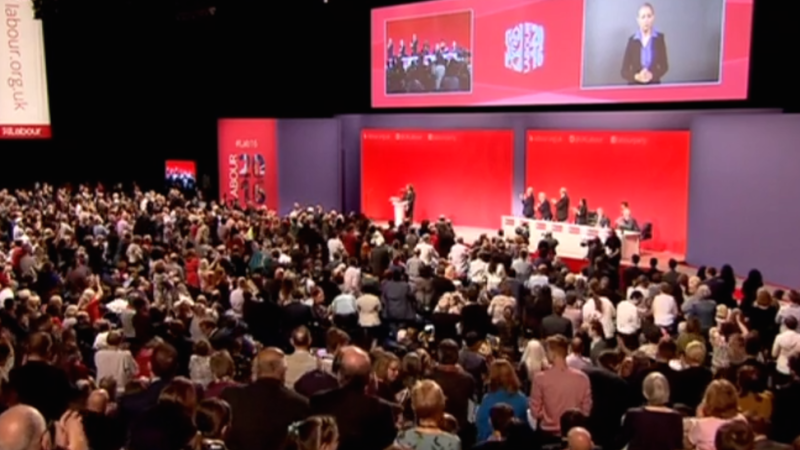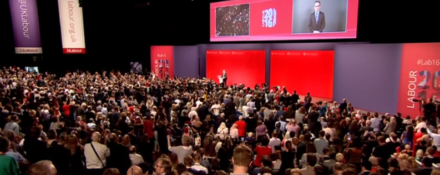

As regular readers know, I’m a former Blair-era centrist MP who supported Jeremy Corbyn at the leadership elections: briefly, I felt that the centre-left had done a great deal of good during 1997-2010 (even if overshadowed by the disasters following Iraq), but a creeping timidity and intellectual passivity had made our offer to both members and voters increasingly irrelevant.
Campaigning for my old seat in 2015, I found myself trying to defend a temporary electricity price freeze as a central point of our programme, and I privately sympathised with voters who expressed polite puzzlement: “What do you really want? How would you like Britain to change?”
Corbyn offered a vigorous breath of fresh enthusiasm combined with a lack of personal vitriol that I like and respect. I was glad to support him.
But that doesn’t mean that I’ve lost contact with the bulk of former colleagues, or have given up on centre-left politics. After Corbyn’s successive wins, a wide range of Labour MPs have shown real interest in reviving real interest in social democracy and what that means in practice. Speeches by people as varied as Yvette Cooper, Keir Starmer, Clive Lewis and Rachael Maskell have moved beyond internal party squabbles and broken new ground in exploring what Labour should stand for. It’s not easy – and there are virtually no social democratic parties anywhere in the west not grappling with similar issues, but the centre-left is reviving.
Opinion polls are universally bleak for Labour at the moment. There is some reason to think that pollsters have overdone the tweaks after the last election, and that they are now understating Labour turnout, but clearly we’re struggling. While a new PLP insurgency against Corbyn would frankly irritate members, no leadership lasts forever and it’s reasonable to look at the procedures for electing leaders in future.
That brings us to what Corbyn critics are calling the “McDonnell amendment”, which would lower the threshold of MPs to get on the ballot, essentially to ensure that the left of the party is able to put up a candidate. There is an active effort by Progress and Labour First – who in Labour terms are on the right – to defeat this.
There are three reasons why they are mistaken – not from the left-wing viewpoint but from the view of longstanding Labour loyalists like me.
First, it attempts to disenfranchise the huge surge of new members as well as a large chunk of longstanding members. It assumes that all these people attracted by Jeremy’s conviction politics will blindly vote for any left-winger, and will choose someone unacceptable to most voters. That’s a patronising view: the party left is as diverse as every other section of the party, and see the current difficulties as well as anyone. Polls of members that confirm Jeremy’s popularity also show doubts about others on the left. But simply denying members a range of choices would be seen as an undemocratic manoeuvre: to put it crudely, “If we can’t trust the members to vote for one of us, let’s make sure the system prevents them having any other option”.
Second, it puts huge pressure on Jeremy to hang on regardless. I don’t think he would want to stay on indefinitely, so long as there was a fair chance for a successor who wouldn’t drop all he and much of what the membership stands for. If the system effectively makes that impossible, I think he would feel it was his duty to carry on as long as humanly possible. Is that what Progress and Labour First want?
And finally, a more subtle point. The way that the social democratic case will succeed in the long run is not by procedural measures to prevent alternative viewpoints from having access to the ballot. It is by having such good arguments that people are actually persuaded. And, if a centre-left candidate can’t persuade his or her own party, the chances are that they won’t persuade the wider electorate either. The centre-left needs to be prepared to put its case and win or its merits. Otherwise, we’ll repeat the 2015 experience of a moderate but essentially empty platform that convinces neither voters nor even ourselves.
A Labour manifesto that is convincing and approved after a genuine choice isn’t just important for the centre-left, it’s important for Labour and important for Britain, because without choice – inside and beyond the party – democracy quietly disappears.
Nick Palmer was Labour MP for Broxtowe 1997-2010 and PPC for Broxtowe in 2015.




More from LabourList
‘I was wrong on the doorstep in Gorton and Denton. I, and all of us, need to listen properly’
‘Why solidarity with Ukraine still matters’
‘Ukraine is Europe’s frontier – and Labour must stay resolute in its defence’